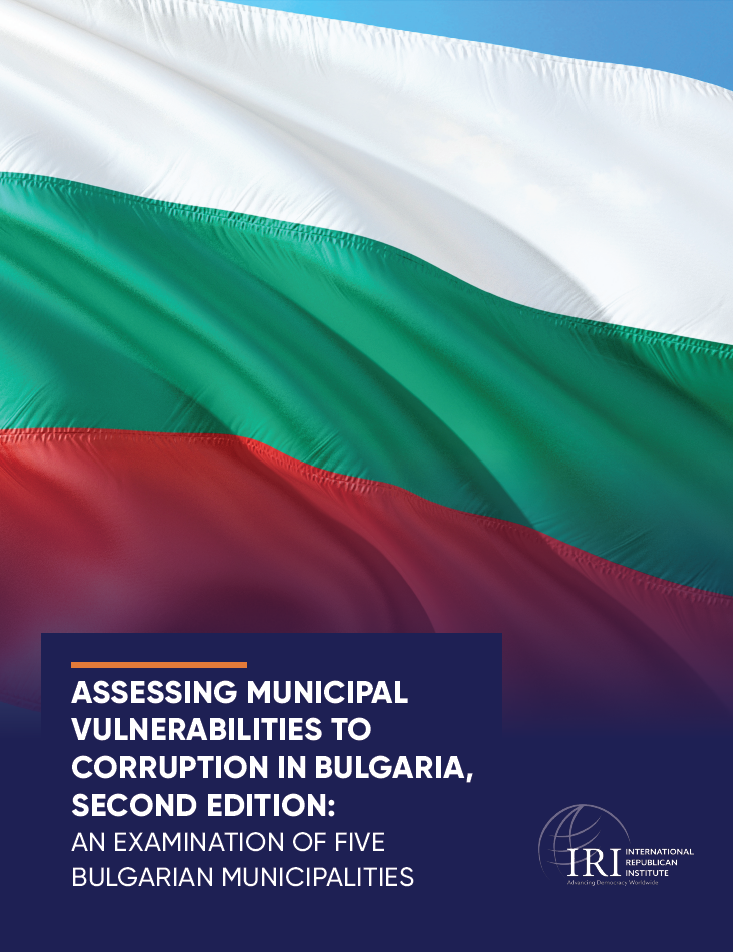Assessing Municipal Vulnerabilities to Corruption in Bulgaria, Second Edition
An Examination of Five Bulgarian Municipalities

Corruption and opaque government spending and hiring practices weaken citizen trust in democratic governance and siphons funds from government services. At the municipal level, this often touches the most basic government functions, including local infrastructure and education. In order to understand and mitigate vulnerabilities to corruption in Bulgarian municipalities, IRI identified and analyzed both weaknesses and strengths in transparency, anticorruption, and citizen engagement practices in the municipalities of Dobrich-City, Gabrovo, Haskovo, Plovdiv, and Vidin.
These assessments comprise this report, Assessing Municipal Vulnerabilities to Corruption in Bulgaria: Second Edition, which follows IRI’s first report, Assessing Municipal Vulnerabilities to Corruption in Bulgaria, which examined a first set of 10 municipalities. Both reports feature as part of IRI’s current program in Bulgaria, which seeks to build recognition by government and non-government leaders of vulnerabilities to corruption that exist in their municipalities, and then equip those stakeholders to address vulnerabilities through reform measures.
Rather than evaluating actual levels of corruption, this report presents an analysis of some of the most pressing vulnerabilities to corruption that can be gleaned from the views and experiences of local stakeholders: political leaders, administrators, council members, journalists, representatives of civil society organizations (CSOs), and engaged citizens. By documenting these vulnerabilities and their potential solutions in a structured and accessible manner, the report can serve as a resource to each community, including contributing to the development of municipal anti-corruption plans and strategies.
Top